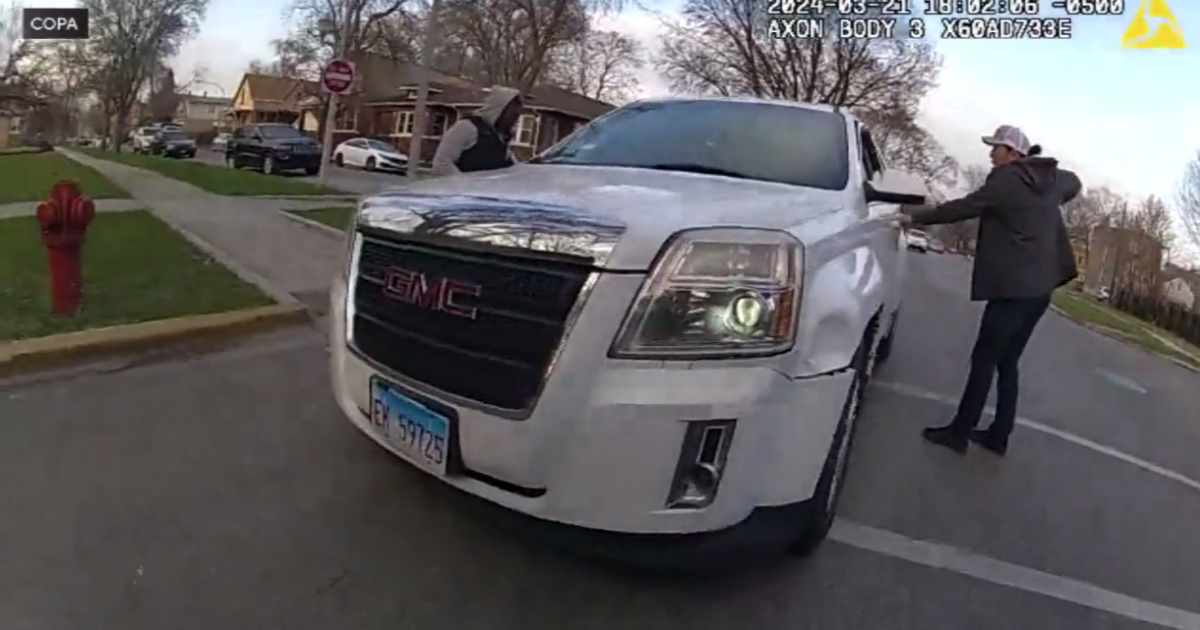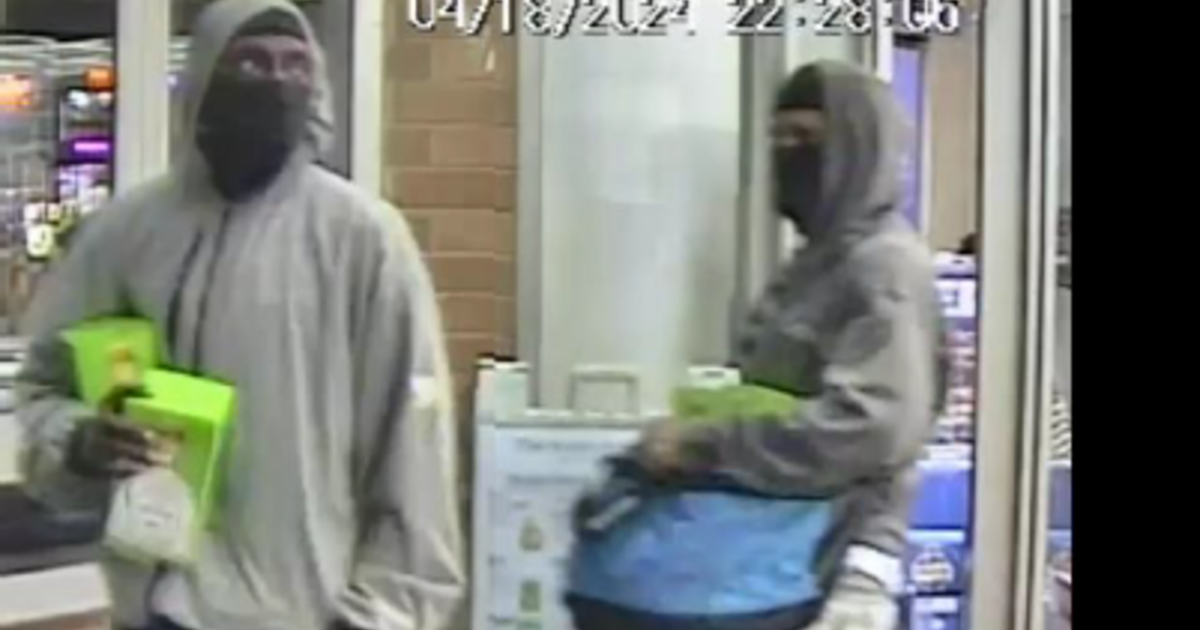Average Kitchens Filled With Potential Dangers
CHICAGO (CBS) -- Could the food you're serving your family be contaminated?
You could be exposing your loved ones to hazards and not even know it.
CBS2's Dorothy Tucker reports on a local health inspector visit to two suburban kitchens. The inspector uncovers some common mistakes you might also be making.
Linda McCroy and Jim and Bess Pabin are equally meticulous in their kitchens. So these Oak Park neighbors agreed to have their Oak Park health inspector, Mike Charley, look around.
Charley was looking for safety violations that could cause your family to get sick.
"The first thing that stands out to me is that you're thawing lamb chops," Charley said.
Problem: The plate was too small. The juice could drip into other products and contaminate them.
Linda had the same violation. The solution: Thaw meat in a covered container.
Another critical violation the families shared was medication stored with containers.
The concern is the medication might fall or leak into food below and cause somebody to get sick.
Solution: Store medicine away from where you prepare food.
Charley found another non-critical violation with the Pabin's cutting board.
"If you start seeing discoloration that means there is actually food left on the cutting board," he said.
That can lead to cross-contamination. A simple solution: use a different colored board for beef, chicken, produce and fish.
One more tip Charley passed along to the families was to never reuse plastic food containers.
"This wasn't really intended for food storage because it has things like this little lip that may be uncleanable," Charley said.
Germs and mold can grow in those spots. Solution: Throw those containers away.
A violation of the food code was a dented can in Linda's cabinet. This was critical violation.
"If it's dented in the seal there is always the potential that air can get in there," the inspector said. "And once air gets in there, bacteria can grow."
Jim Pabin admits he only cleans his germ-filled dishwashing pad once a month, and Charley says they should be cleaned with bleach every couple of days.
One of the families had four critical violations. The other had two.
However, both families passed the inspection.
Remember, these were common mistakes that many of us make.
Here is a recap of tips and some additional ones, as well:
Problem:
Ensuring proper refrigerator temperature to prevent bacteria growth
Solution:
Ambient air thermometer should be inside refrigerator and read 39 degrees to ensure that food is kept at 41 degrees or less
Problem:
Thawing meat in refrigerator
Solution:
Thaw in a covered container to ensure that juice does not drip onto food below or that something above does not fall onto meat
Problem:
Discolored cutting boards are a sign that food is still present and may lead to cross-contamination
Solution:
Sanitize or replace. In the future: use different colored boards for cutting different items such as red for meat; blue for fish; green for fruits and vegetables; yellow for poultry
Problem:
Storing medicine, vitamins in cabinets with dishes, glassware and above food prep area; medicine may contaminate dishes or fall into food below
Solution:
Store medicine away from food storage and prep areas and dishes
Problem:
Storing food on the floor could lead to contamination of the exterior of the food such as a watermelon rind; storing food in pantry next to cleaning supplies could lead to cross-contamination
Solution:
Store all food, even boxed and bagged food, in separate locations from toxic chemicals; store all food at least 6 inches above the ground
Problem:
Using contact paper as a liner for food equipment storage areas; if dirty, it is not cleanable and could contaminate food
Solution:
Remove contact paper
Problem:
Dented food cans could be a signal that the food inside is unsafe to eat because bacteria might have penetrated through a microscopic hole in the can
Solution:
Don't buy any items that are dented and throw out any in your pantry/cabinets
Problem:
Reusing single-serve aluminum pans or plastic containers; they are too hard to clean and could leave traces of food behind, causing contamination of next food cooked and/or stored
Solution:
Throw out any single-serve containers, pans you may have already used once; never reuse those types of containers
Problem:
Keeping and using sponges, dishtowels, scouring pads too long
Solution:
Throw out, wash or sanitize every 2 or 3 days; sanitize sponges by wetting and putting in microwave for 1 minute to kill bacteria, yeast and mold or put it through the dishwasher



